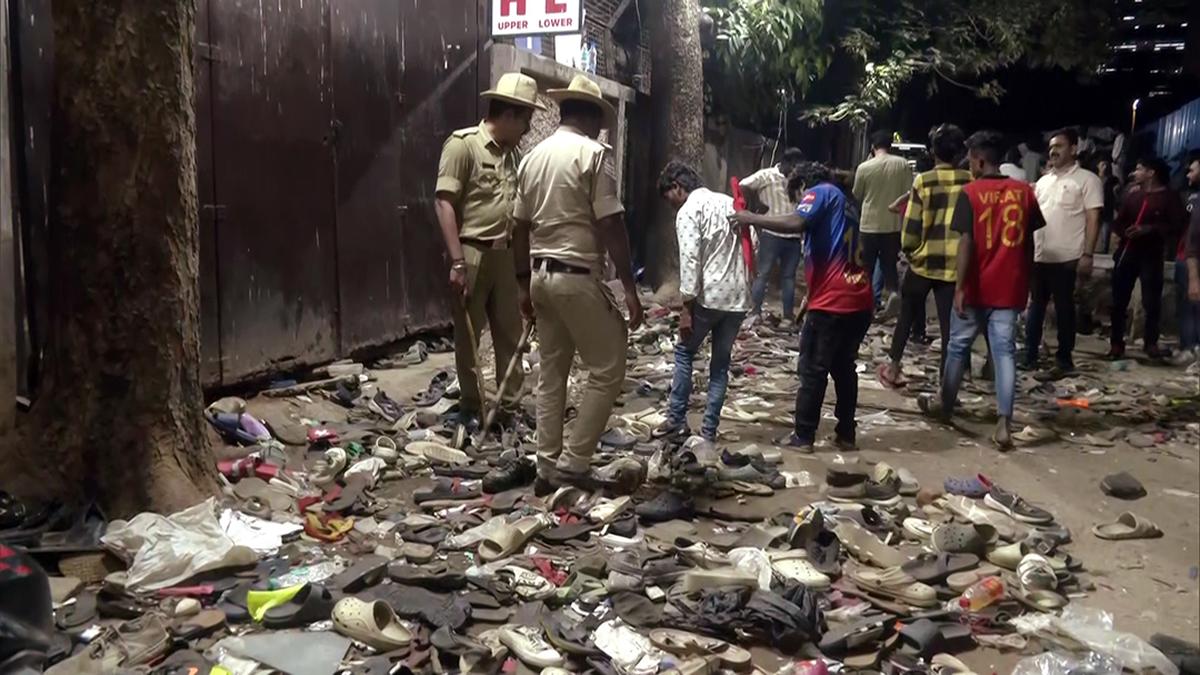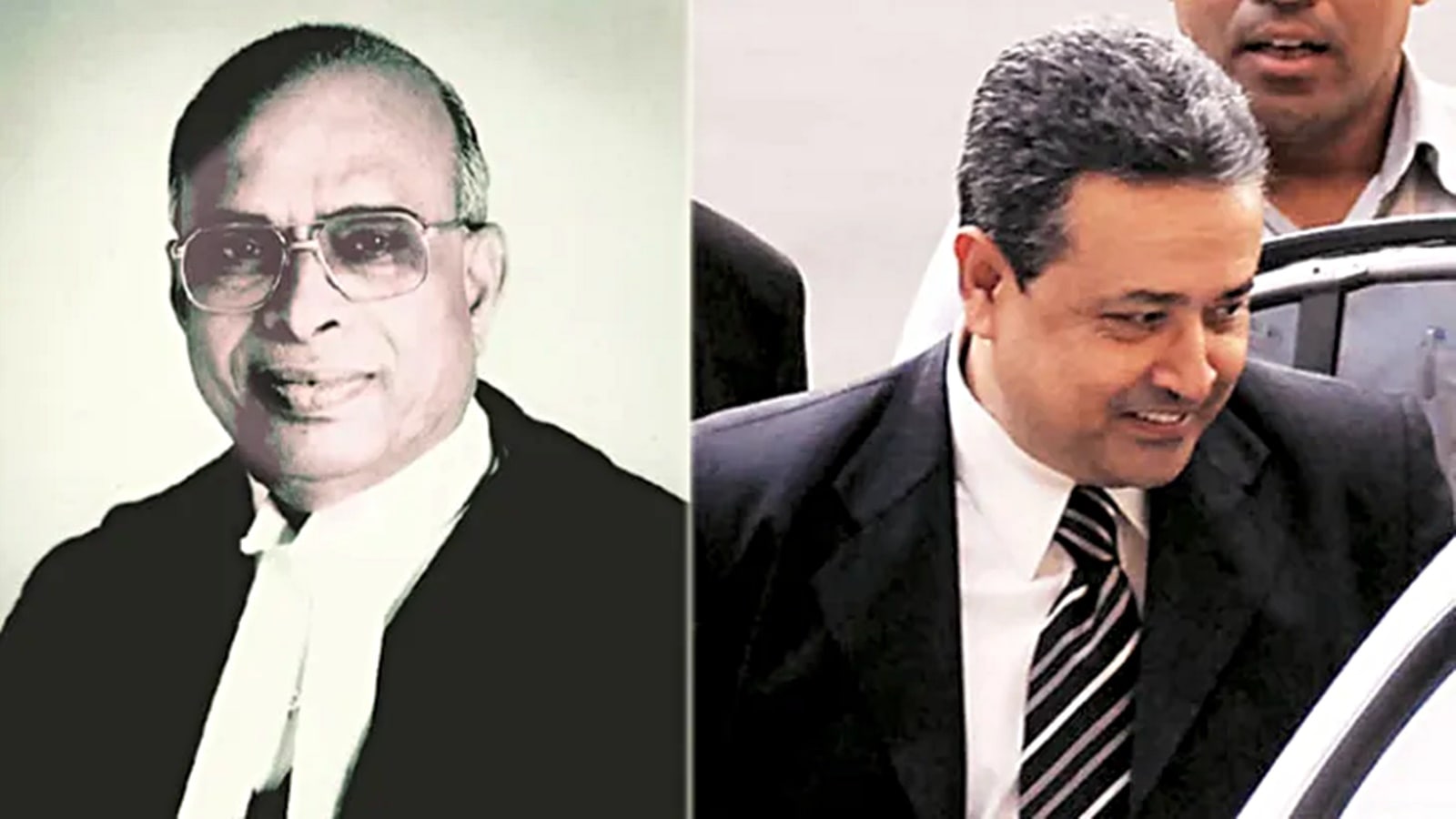ARTICLE AD BOX
Last Updated:June 03, 2025, 18:01 IST
On February 20, 1948, a referendum was held in Junagadh. Of 201,457 voters, 190,870 cast ballots—only 91 voted for Pakistan, reaffirming the state's merger with India

Junagadh was not geographically connected to Pakistan and had a predominantly Hindu population. (News18 Hindi)
For the past 72 years, Pakistan has continued to depict not just Jammu & Kashmir and Ladakh, but also two significant regions of Gujarat—Junagadh and Manavadar—in its official maps. In its latest edition, the country has once again included these areas, reaffirming its long-standing and controversial territorial claims.
Every political map issued by Pakistan involves direct involvement from the government, not just the Survey Department, making it a deliberate and persistent move that dates back to the time of Partition.
Despite Junagadh and Manavadar being an integral part of India, Pakistan has never accepted their merger. In fact, Junagadh was one of the princely states where Pakistan faced a decisive setback.
Pakistan engages in several symbolic actions concerning Junagadh. For instance, it reportedly issues a limited number of vehicle licenses each year using Junagadh registration plates. It has also been reported that in a show of defiance, Pakistan also refuses to recognize Daman and Diu—regions adjacent to Junagadh—as part of India. Instead, its official maps depict them as Portuguese territory, even though India integrated Daman and Diu from Portugal in 1961.
According to Patrick French’s book Liberty and Death, Pakistan is fully aware that Junagadh is an integral part of India, yet it persistently includes the region in its official maps.
The Nawab of Junagadh, one of the Kathiawar princely states, signed a merger agreement with Pakistan on August 15, 1947. Although the ruler, Nawab Muhammad Mahabat Khan, was Muslim, the majority population in Junagadh was Hindu. Both the Nawab and his Diwan, Shahnawaz Bhutto, were inclined towards Pakistan, influenced by the promises made by Mohammad Ali Jinnah.
However, V.P. Menon wrote to the Pakistani High Commissioner on August 21, pointing out that Junagadh was not geographically connected to Pakistan and had a predominantly Hindu population, and thus called for a referendum to determine its future.
No Reply From Pakistan
According to Ashok Pandey’s book Kashmirnama, when Pakistan did not respond to the initial letter, it was sent again, but there was still no reply. On September 12, Prime Minister Nehru, through Mountbatten’s Chief of Staff Lord Ismay, conveyed that India was willing to accept the outcome of any plebiscite.
The very next day, Pakistan declared that Junagadh had merged with it. This announcement enraged the people of Junagadh, sparking a mass movement that soon gained support from neighbouring states. Pressure mounted on India to take action. However, Nehru and Patel were aware that any war at that moment would likely lead the international community to blame India.
The Nawab of Junagadh refused to meet VP Menon, citing illness as the reason. In response, India adopted a different approach by deploying the armies of neighbouring states along Junagadh’s borders. Menon was sent to Junagadh to persuade the Nawab to hold a referendum once again, but the Nawab declined to meet him. Meanwhile, Junagadh also laid claim to the territories of Babariawad and Mangrol.
On October 1, 1947, the Nawab of Junagadh occupied Mangrol. In response, India wrote to the Prime Minister of Pakistan, urging the Nawab to vacate the territory. Pakistan, however, demanded a legal investigation into the merger of Mangrol and Babariawad, despite both regions having already signed merger agreements with India.
Nawab Of Junagadh Flees
In response, India promptly handed over the administration of Mangrol and Babariawad to the Indian Civil Service and imposed economic sanctions on Junagadh. The Nawab had already fled to Karachi with the state’s treasury, and Junagadh’s situation worsened steadily.
Public anger grew stronger, and on October 27, Diwan Bhutto, realising no help would come from Pakistan, requested India to take over the administration. Subsequently, on November 5, a State Council assumed control of the state’s affairs.
Pakistan Got Only 92 Votes In Junagadh
According to V.P. Menon’s book Integration of the Indian States, Diwan Bhutto broke down under the mounting pressure. In this situation, Indian forces entered Junagadh on November 9, and Nehru formally informed Pakistan’s Prime Minister Liaquat Ali Khan about the move.
On February 20, 1948, a referendum was held in Junagadh. Of the total 201,457 registered voters, 190,870 cast their votes, with only 91 in favor of Pakistan. Consequently, Junagadh officially became part of India.
According to Geocurrents, when Indian forces entered Junagadh, Nehru sent a telegram to Liaquat Ali Khan stating that Indian forces had entered to hold a plebiscite there.
Pakistan Sent Another Message
Liaquat Ali Khan responded with a telegram stating that Junagadh was Pakistan’s territory and only the Pakistan government had the authority to take action there. He accused India of violating international law and breaching established norms by deploying its forces in what he claimed was Pakistani territory. The Pakistan government strongly opposed India’s presence in Junagadh.
What Did Mountbatten Reply
According to H.V. Hodson’s book The Great Divide, Governor-General Mountbatten sent a report on the Junagadh situation to the British King. When Jinnah complained to Mountbatten about the movement of Indian troops, Mountbatten’s response was blunt. He pointed out that Pakistan’s actions violated its agreement with the Indian government. Pakistan was left without a response.
Later, when Pakistan attempted a similar move in Manavadar, it again faced firm Indian action.
Pakistan Suffered Two Setbacks
These two setbacks proved unbearable for Pakistan. It tried to raise the issue at the United Nations but failed to gain any support. Since then, Pakistan has officially continued to claim Junagadh and Manavadar as its own territory.
It has never accepted their merger with India and has been expressing its displeasure by including both regions in its official maps for the past 72 years.
What Happened To The Nawab Of Junagadh
As for the Nawab of Junagadh, life in Pakistan turned out to be far from what he had envisioned. Today, his descendants live in difficult conditions, with a monthly allowance of just Rs 16,000.
- Location :
Junagadh, India, India
- First Published:
News india Pakistan Still Shows Junagadh On Its Map Despite Losing 1948 Vote; Here's The Nawab's Condition Now



.png)
.png)
.png)
















 3 days ago
5
3 days ago
5









 English (US) ·
English (US) ·